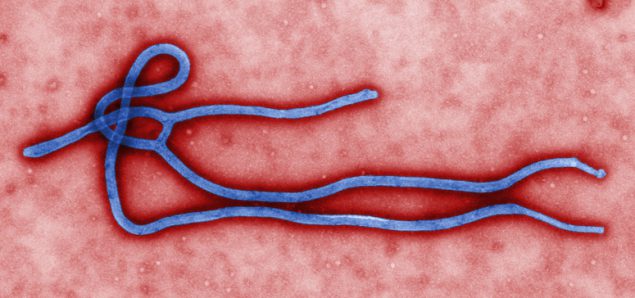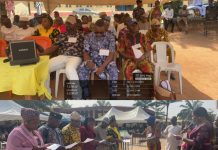
The World Health Organisation (WHO), Regional Office for Africa, has confirmed seven new cases of Ebola Virus Disease (EVD) in Democratic Republic of Congo (DRC).
The UN’s health agency confirmed the development on its official twitter account @WHOAFRO on Wednesday.
“Seven Ebola cases have been reported in Beni, DRC since the resurgence of this outbreak in April.
“WHO continues to support the Ministry of Health in the country to detect, isolate, test and treat suspected cases, despite local insecurity and global health challenges,’’ it said.
Meanwhile, Ebola virus disease for DRC External Situation Report 91 issued on May 5, which covered April 27 to May 3, stated that the seven cases were from Kasanga, Malepe and Kanzulinzuli Health Areas in Beni Health Zone.
READ ALSO: Immortalise Stella Adadevoh, Guild Of Medical Directors Tell FG
“Of these seven cases, one is receiving care at the Beni Ebola treatment centre (ETC) one who was receiving care at the ETC recovered and was discharged, and one remains in the community.
“Response teams are engaging with community members to locate that person and to bring him to the ETC for access to treatment and supportive care. “Also to identify all close contacts that could have been exposed during the three weeks he spent symptomatic in the community.
“Four confirmed cases have died, including two community deaths and two deaths in the ETC in Beni. “Since April 10, 987 people have been vaccinated in Beni and Karisimbi,’’ it said.
According to the report, a total of 1,009 contacts of the seven cases have been registered. “As of May 3, 2020, 452 contacts completed their 21-day follow up.
“There are currently 557 contacts of five cases to follow, including 133 high risk contacts who had direct contact with body fluids of confirmed cases.
“Thirty-three high risk contacts have opted to voluntarily isolate themselves in a dedicated site where essential goods and health services are provided to them,” it said.
From 27 April to 3 May, it stated an average of 2,165 alerts were reported and investigated per day. According to the report, of these, an average of 284 alerts were validated as suspected cases each day, requiring specialised care and laboratory testing to rule-out EVD.
Timely testing of suspected cases continues to be provided from eight laboratories.
“From 27 April to 3 May 2020, 2,113 samples were tested, including 1,466 blood samples from alive, suspected cases; 308 swabs from community deaths; and 339 samples from re-tested patients.
“Overall, laboratory activities increased by 37 per cent compared to the previous week,” it said.
As of May 3, the report stated that a total of 3,462 EVD cases, including 3,317 confirmed and 145 probable cases had been reported, of which 2,279 cases died (overall case fatality ratio 66 per cent). “Of the total confirmed and probable cases, 57 per cent (number = 1961) were female, 29 per cent (number = 996) were children aged less than 18 years, and five per cent (number = 171) were healthcare workers. “As of May 3, 1,170 cases have recovered from EVD.
“It is essential to detect, isolate, test and treat new suspected cases as early as possible in order to improve outcome of cases and break the chain of transmission.
“However, response teams currently face a number of challenges, including limited resources due to other local and global emergencies, insecurity, and limited access to some communities.
“A major funding gap is also constraining the response; WHO currently requires 21.5 million dollars to ensure continuity of essential EVD response activities in the Democratic Republic of the Congo,’’ it stated. (NAN)















